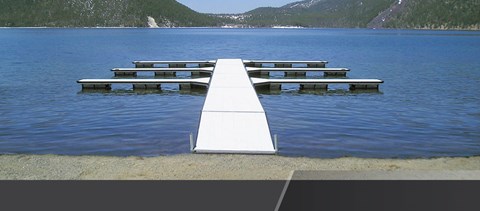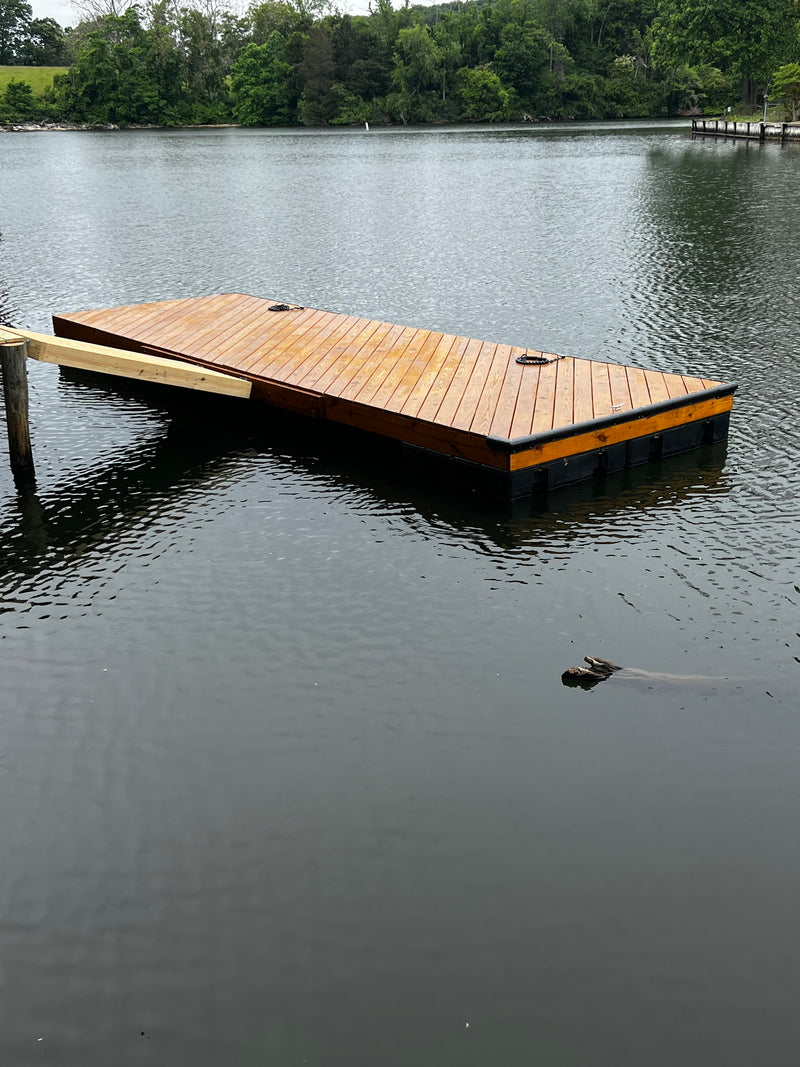Why Floating Docks Are the Perfect Option for Your Waterside Needs
Floating docks present a compelling option for waterfront demands, particularly due to their flexibility to varying water degrees and their robust, modular style. As we check out the multifaceted advantages and applications of floating docks, it ends up being noticeable why they stand out in the realm of beachfront infrastructure-- especially when considering the long-term advantages they provide for different stakeholders.
Key Advantages of Floating Docks
The adaptability of floating docks deals numerous advantages for waterfront applications, making them a progressively preferred selection amongst marina drivers and home designers. Among the main benefits is their versatility to rising and fall water degrees, which enables them to remain useful in numerous environments, including lakes, rivers, and coastal areas. Unlike standard fixed docks, floating docks can climb and drop with the tides and seasonal modifications, guaranteeing consistent accessibility.
Additionally, floating docks are normally simpler and cheaper to maintain and set up. Their modular layout facilitates quick setting up, minimizing labor prices and construction time. Furthermore, the products utilized in floating dock building are often immune to rust, making sure longevity with minimal maintenance.
Safety is an additional essential benefit; the buoyant nature of these docks decreases the threat of accidents throughout boarding and getting off, making them specifically appealing for family-oriented facilities. Their environmental effect is lower than that of set structures, as they do not interrupt aquatic environments. Collectively, these benefits position floating docks as a remarkable solution for a variety of beachfront requirements, straightening with both operational effectiveness and eco-friendly considerations.
Suitable Applications for Various Tasks
Adaptability is a trademark of floating docks, making them suitable for a variety of activities throughout numerous waterfront settings. These functional structures can offer as ideal platforms for entertainment tasks such as boating, fishing, and swimming. Their buoyant nature enables very easy access to watercraft, allowing smooth embarkation and disembarkation, while likewise providing a secure location for fishermens to cast their lines.
In commercial settings, floating docks assist in the loading and dumping of goods, fitting both tiny and large vessels. They are particularly valuable in locations with fluctuating water levels, guaranteeing that operations stay undisturbed. Additionally, floating docks can be used for waterfront dining and enjoyment, giving a one-of-a-kind and scenic experience for patrons.
Environmental applications are also noteworthy; floating docks can function as monitoring systems for wild animals enjoying or as docking terminals for research study vessels participated in environmental studies. As marina expansions become much more prevalent, these docks supply a sensible remedy for boosting capability without comprehensive land alterations. Ultimately, the versatility of floating docks makes them a favored choice for any person looking for efficient and useful waterside solutions.
Layout and Modification Alternatives
Floating docks not just satisfy diverse tasks however also supply an array of style and customization choices that improve their performance and visual charm. These versatile frameworks can be tailored to fit details waterside needs, whether for household, industrial, or recreational functions.
One key element of personalization is the choice of products. Options vary from high-density polyethylene to check my source aluminum, each supplying distinct advantages in terms of resilience and upkeep. Additionally, the arrangement of the dock can be adapted to match various water degrees and environmental conditions, ensuring stability and safety and security.
Design functions can consist of integrated seats, barriers, and lighting, which not just improve functionality yet also improve the aesthetic aspect of the dock. Custom-made shades and finishes allow owners to match the dock with existing frameworks explanation or personal choices, creating a cohesive try to find the waterside.
Additionally, floating docks can be created with modular areas, making it possible for simple growth or reconfiguration as needs change. This adaptability is especially valuable for growing households or developing companies. Generally, the comprehensive layout and modification choices available make floating docks a very versatile service for any type of waterfront setting.
Installment and Upkeep Factors To Consider
Generally, successful setup and maintenance of floating docks need careful planning and interest to information. Prior to beginning installation, it is vital to evaluate the particular website problems, consisting of water depth, wave action, and local guidelines. This preliminary assessment educates the option of products and style, making sure the dock will certainly hold up against environmental tensions.

Upkeep is just as crucial to prolong the lifespan of the dock. Normal examinations should be conducted to identify damage, especially on flotation protection tools, ports, and decking. Cleaning the dock periodically helps stop the buildup of algae and debris, which can jeopardize surface area stability and appearances.
Additionally, seasonal prep work, such as eliminating devices and protecting the dock throughout severe weather, can avoid damage. By focusing on proper installment and regular maintenance, proprietors can ensure their floating dock remains a reputable and practical waterfront service for years to come.

Ecological Effect and Sustainability
The environmental influence of floating docks is a vital factor to consider for waterside tasks, as these frameworks communicate directly with water ecological communities. floating dock company. Unlike standard fixed docks, floating docks minimize disruption to the substratum, allowing for all-natural debris motion and reducing erosion. Their design permits water circulation below, promoting healthy and balanced water settings and sustaining regional wild animals
Several floating docks are created from sustainable materials, such as recycled plastics and environmentally friendly composites, which lower the carbon footprint associated with production. Additionally, contemporary styles include attributes that enhance ecological sustainability, such as permeable surface areas that promote water purification and reduce contamination.
Floating docks likewise offer an ideal platform for habitat remediation by sustaining the growth of water vegetation and offering shelter for fish and other marine microorganisms. By find more info including functions like fish habitats and immersed plantings, floating docks can boost biodiversity in the area.
Furthermore, these frameworks can be developed to suit solar panels, providing renewable resource alternatives that even more lower their environmental effect (floating dock services). Generally, floating docks represent a lasting solution that stabilizes human use of watersides with the conservation of essential ecological communities
Verdict
In final thought, floating docks existing a very adaptable and sustainable solution for varied waterfront demands. Inevitably, the adjustable features and capacity for expansion more strengthen floating docks as a suitable option for any waterside job.
Floating docks present an engaging solution for beachfront requirements, particularly due to their adaptability to rising and fall water degrees and their robust, modular style. Unlike typical set docks, floating docks can fall and climb with the tides and seasonal changes, ensuring consistent access.
Jointly, these advantages placement floating docks as a remarkable solution for a range of waterfront requirements, lining up with both operational effectiveness and ecological considerations.
In general, the extensive layout and modification alternatives readily available make floating docks a very versatile solution for any waterside setting.
Unlike typical fixed docks, floating docks decrease disturbance to the substratum, permitting for all-natural debris activity and minimizing erosion.
Comments on “The Importance of Quality in Floating Dock Builder Selection for Lasting Docks”